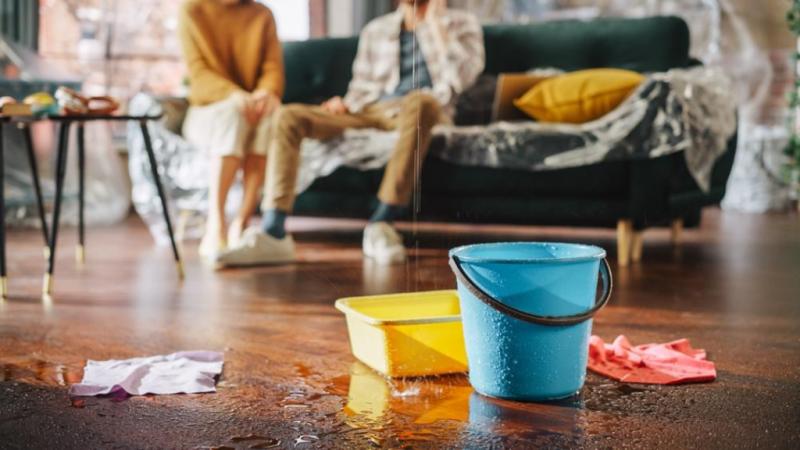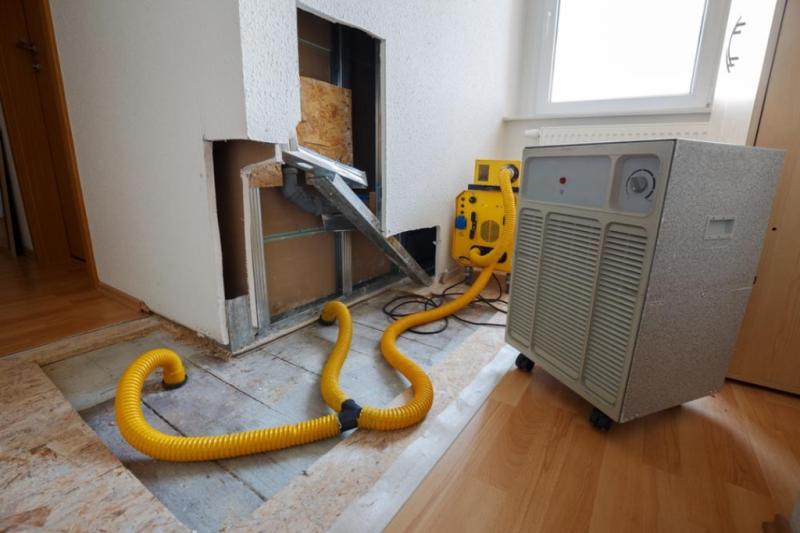What to Do if There Are Signs of Water Damage in Your Home

Source: Gorodenkoff/Shutterstock.com
Water damage can be a homeowner's worst nightmare. Early detection and action can prevent potential catastrophes, whether it's a result of torrential rainfalls, hurricanes common to the Houston area, or plumbing issues and appliance failure. Did you know that the most common cause of residential water damage is a bust washing machine hose? As a Houston resident, understanding the signs of water damage and the steps to mitigate it are critical. Here's a comprehensive guide on what to do if there are signs of water damage in your home.
Identifying the Signs of Water Damage
Before diving into the remediation steps, it's essential to recognize the signs of water damage:
- Dark or wet spots: Observe your walls, ceiling, and floors. Any unexplained dark or wet patches can indicate a leak or seepage.
- Swelling of walls or baseboards: If your drywall or baseboards seem to be swelling or breaking apart, they might be absorbing moisture.
- Musty odor: A persistent musty smell, especially in closets or less-frequented rooms, can suggest mold growth, a direct result of moisture issues.
- Sagging ceilings or walls: If parts of your ceiling or walls begin sagging or warping, it might be due to water accumulation.
- Running water sounds: Hearing water when no source is open? This could indicate a leak in your plumbing system.
Immediate Steps to Take
- Safety first: Ensure everything is safe before inspecting any suspected water-damaged area. If there's extensive damage, it might be best to evacuate. Turn off the electricity if you suspect water has entered the electrical outlets.
- Stop the water source: If the water damage source is a visible leak, such as a burst pipe, turn off the home's main water supply.
- Document the damage: Take photos of the water damage before starting cleanup or repair. This will be vital for insurance claims.
- Remove excess water: Using towels, mops, or a wet vacuum, remove as much water as you can. In Houston's humid climate, it's crucial to dry out the area quickly to prevent mold growth.
Mold Concerns and Remediation
Houston's humid climate also makes homes particularly susceptible to mold after water damage. If you suspect mold growth:
- Inspect thoroughly: Look behind furniture throughout your house, in closets, attics, beneath sink cabinets, and other less-visited spots.
- Call the professionals: While minor mold can be cleaned away with household products, extensive mold growth requires professional remediation.
- Prevention: Use dehumidifiers and ensure proper ventilation, especially after incidents of water damage.

Source: Juefrateam/Shutterstock.com
Maintaining Vigilance: Regular Checks and Maintenance
As the saying goes, an ounce of prevention is worth a pound of cure. Given Houston’s propensity for extreme weather and its humid climate, homeowners must stay vigilant. Regular checks and maintenance can save thousands of dollars in repair and water restoration costs.
Routine Inspections
Gutters and downspouts: These are crucial in directing rainwater away from your home's foundation. Clogged gutters can cause water to overflow, leading to foundation and landscaping issues. Regular cleaning, especially after a storm, ensures smooth water flow.
Appliances: Regularly inspect appliances like washing machines, dishwashers, and refrigerators for any signs of leaks. Even a minor leak can cause significant damage over time if left unchecked. Upgrade rubber water supply hoses with braided stainless steel hoses that are less likely to burst or leak.
Windows and doors: Ensure the seals around windows and doors are in good condition. Any compromise in these seals can allow rainwater to seep in, leading to damage and increased energy costs.
Understanding Houston's Soil and Foundation Concerns
The soil in Houston is primarily clayey, which can expand when wet and shrink when dry. This can lead to ground movement, affecting your home's foundation.
- Regular foundation checks: Look for cracks or shifts in your home's foundation. Any signs of damage need immediate attention.
- Landscaping practices: Planting certain types of deep-rooted trees close to your home can affect the foundation due to root growth. Ensure that trees are planted at a safe distance, and consider consulting with a landscaping expert familiar with Houston's specific soil challenges.
Seek Professional Help
For extensive water damage, especially due to natural calamities like Houston's infamous storms, it's crucial to call in professionals. They have specialized equipment and expertise to handle significant water-related damages, ensuring your home's structure isn't compromised.
They can assess underlying issues that might not be immediately visible, preventing future complications and costly repairs. Their comprehensive approach to water damage restoration provides peace of mind, knowing that your property is in the hands of experts who prioritize safety and efficiency.
Insurance and Water Damage in Houston
While dealing with water damage, it's essential to understand what your homeowner's insurance covers. In Houston, where flooding is common, you might need separate flood insurance. Regularly review and update your policy, ensuring you're adequately covered for the region's specific challenges.
Conclusion
Water damage, while distressing, can be managed with prompt action. By recognizing the signs early and taking the appropriate measures, Houston homeowners can safeguard their properties and mitigate potential damages. In a region where water-related issues are frequent, proactive measures, regular inspections, and a sound understanding of your insurance policy can make all the difference.
More to Read:
Previous Posts:


